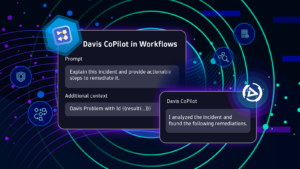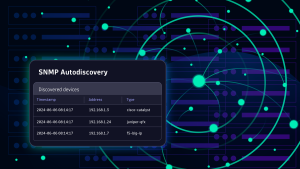
Dynatrace Blog
Drive your business forward in the digital age.


CVE-2025-55182: React2Shell Critical Vulnerability — what it is and what to do
Optimizing AI ROI from DevOps and IT Operations: The rising need for AI/LLM observability

Write the future: Create your own agentic workflows

From incident response to everyday analytics: Introducing Dynatrace Investigations

Accelerate SNMP network device observability with Dynatrace Discovery & Coverage

Reliable enterprise automation at scale: Accelerate the innovation loop with Dynatrace Workflows

Introducing findings in the Vulnerabilities app: Unified, granular insights for smarter security

Is it vibe coding if you know what you’re doing?

When your service won’t wait: Troubleshooting EasyTrade with Dynatrace MCP and Gemini CLI

Reimagine IBM Z Observability: How Provinzial modernized z/OS Monitoring with Dynatrace SaaS

Six observability predictions for 2026

Cost allocation for logs: Precise, flexible, and non-disruptive

AI’s surprising role in chaos engineering

Unified privacy and sensitive data management for logs with the Sensitive Data Center

CVE-2025-55182: React2Shell Critical Vulnerability — what it is and what to do

Optimizing AI ROI from DevOps and IT Operations: The rising need for AI/LLM observability

Smarter cloud security with Dynatrace and Kiro CLI

AWS re:Invent 2025: Accelerate into the age of agentic with AI-powered observability

Real-time insights: Leverage Dynatrace observability capabilities within Kiro powered by AWS

Want to catch the AI native wave? Learn the lessons of the cloud-native shift

How to build workflows that catch bugs early and keep code moving

Boost cloud reliability: Dynatrace and Azure SRE Agent unite for autonomous operations

Ingest and enrich SonarQube security and quality findings with Dynatrace

AWS publishes Dynatrace-developed blueprint for secure Amazon Bedrock access at scale

From code to cloud: Dynatrace launches first GitHub custom agent, consolidating observability for developers

